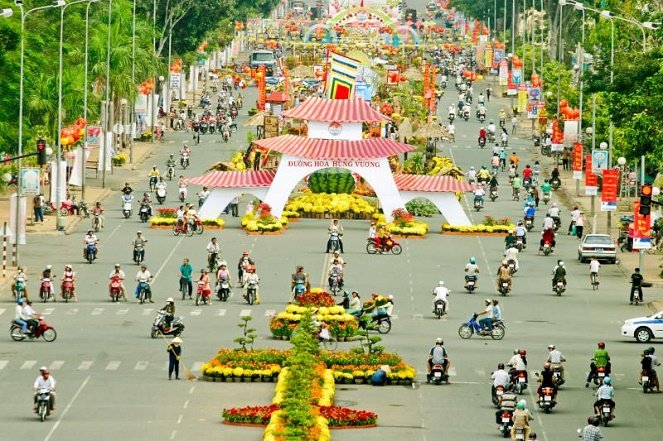Tien Giang province has spent over 4 trillion VND carrying out the national target program on building new-style rural areas in the period of 2021 – 2025 in order to be recognized as a new-style rural province.
 |
|
A corner of Tien Giang province's My Tho city (Photo: tuoitre.vn)
|
In 2021, the province has poured 514.5 billion VND from the local budget and nearly 245 billion VND from businesses’ capital in the program.
Tien Giang province expects to have 12 more new-style rural communes, 14 more advanced new-style rural communes, and one more district meeting the criteria set by the program.
According to Chairman of the Tien Giang provincial People’s Committee Nguyen Van Vinh, the locality has taken comprehensive and drastical measures with the aim of having all of its communes and districts recognized as new-style rural areas, and 40 percent and 14 percent of the communes meeting advanced and model new-style rural standards, respectively.
It also targets two districts meeting the criteria of an advanced new-style rural area.
Many measures have been implemented to improve the material and spiritual lives for rural locals, and build and upgrade modern rural socio-economic infrastructure in connection of urbanization and environmental protection.
The locality has also paid attention to organizing communication activities in order to raise public awareness and responsibility of the importance of new-style rural building in the national industrialisation and modernisation process.
Planning-related work, agricultural restructuring, and sustainable and hi-tech agriculture development have been concentrated, contributing to fulfilling the locality’s development goals.
By early 2021, the province had 119 communes recognised as new-style rural areas, 10 others meeting the standard of advanced new-style rural commune, accounting for 83.21 percent and 6.29 percent of the total communes in the locality, respectively.
Three urban areas had completed the task of new-style rural construction, while two districts were recognized as new-style rural areas.
Per capita income in Tien Giang in 2020 increased nearly 3 percent compared to 2011, while the rate of poor households decreased to 1.97 percent from 9.63 percent./.
BTA